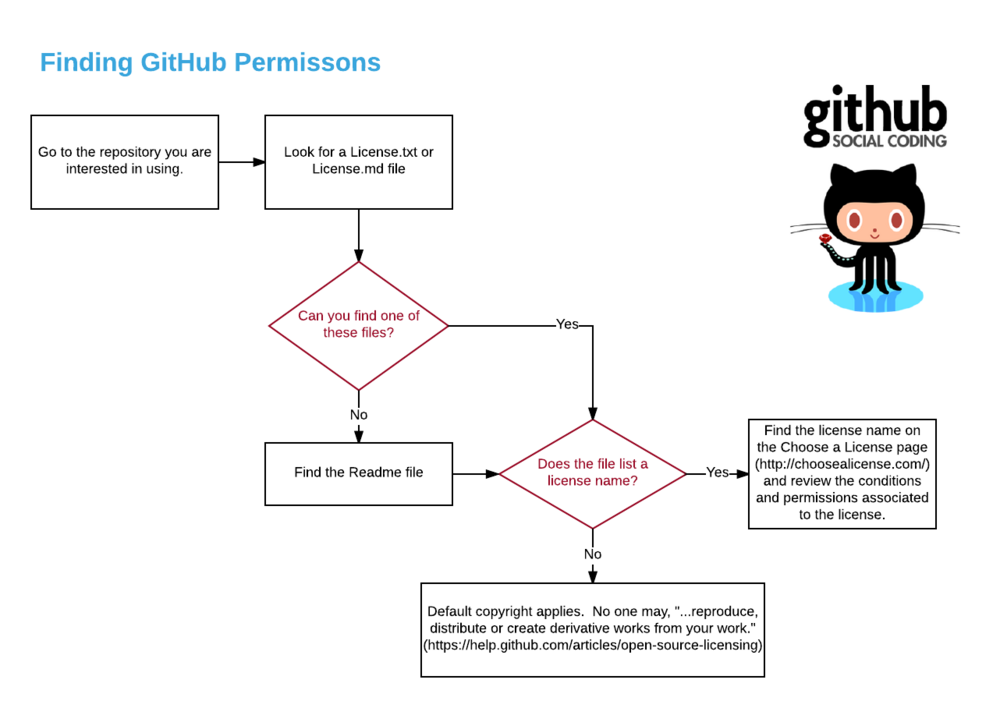Documentation:Open UBC/Guide/Faculty Open Licensing/Permissions/GitHub
GitHub - Identifying Permissions
GitHub is a web-based Git repository hosting service. It offers both private and free accounts which are (usually) used to host open-source software project.
While the purpose of GitHub is to house open-source software, the rights and permissions to use the content in GitHub remains in the hands of the creators. This means when adopting GitHub content, you need to be aware of how the resource can be used. This will require you to look for rights and permissions.
Rights and permissions outline how work can be used, including produced, copied, performed, published, adapted, translated or telecommunicated. It's important to remember that just because an item is available online, it does not give an individual the right to use the work however they choose.
The following outlines how you can find the permissions and conditions of use for GitHub content.
Adapting and Adopting Open Content
If you are remixing, adapting, or modifying open source and/or openly licensed content, review the following material:
- Refer to the http://choosealicense.com/licenses/ page noted above for an overview of the permissions, conditions and restrictions on the most commonly used licences. In the Permissions column look for terms like ‘modification’ and ‘distribution’. Review the Conditions column for terms like ‘Same license’ and ‘State changes’. Hover over the statements for a full explanation.
- More licences can be reviewed on the Appendix page, http://choosealicense.com/appendix/ which also provides a useful Legend of the various permissions, conditions and limitations. In the latter category note the ‘Trademark Use’ limitation and its applicability in the Legend.
If you cannot find the "Terms of Use" or "Licence" for an item, contact the Scholarly Communications and Copyright Office for assistance.
